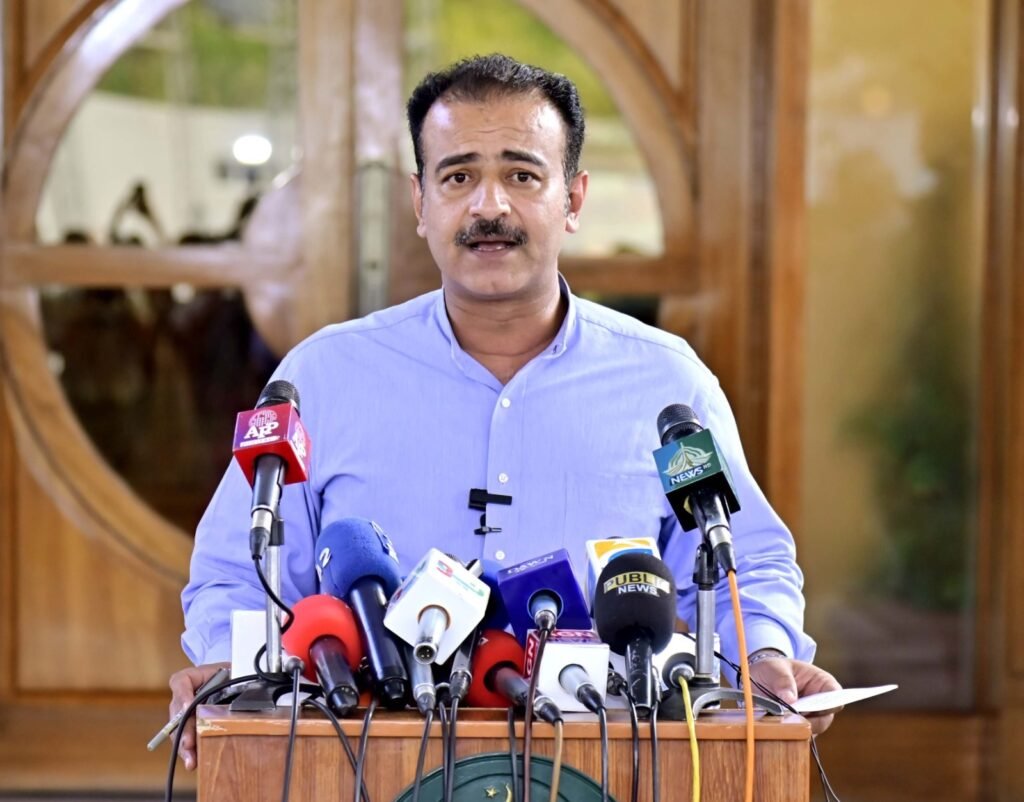Govt spokesperson outlines a clear and strategic approach
Quetta – The Balochistan government has announced a comprehensive strategy to tackle governance challenges and revitalize the province’s struggling education sector. Provincial Government Spokesman Shahid Rind shared details of the planned reforms during a press conference at the Chief Minister’s Secretariat on Friday, emphasizing a clear and results-driven approach to addressing critical issues.
Recruitment Drive to Fill Teacher Shortages
To address the severe teacher shortage in Balochistan, the provincial government plans to recruit around 12,000 teachers in a phased manner under a transparent contract policy.
- Phase 1: The appointment of 3,891 teachers, who were selected through rigorous test interviews conducted by Sardar Bahadur Khan Women’s University, will commence next week.
- Phase 2: An additional 9,000 teachers will be recruited based on academic merit, ensuring a fair and equitable selection process.
This large-scale recruitment drive aims to bridge the staffing gap in schools, ensuring students receive consistent and quality education.
Strengthening Examination Systems
To eliminate malpractices in exams and uphold academic integrity, the government has implemented stringent measures:
- Administrative Officers as Superintendents: In a groundbreaking move, administrative officers will now oversee 430 examination centers across the province.
- CCTV Surveillance: All centers will be equipped with CCTV cameras to monitor and prevent cheating.
- Security Enhancements: Frontier Corps (FC) personnel will enforce a 300-meter no-entry zone around examination centers, with violators facing legal action, including FIRs.
Combatting Fake Degree Submissions
The government has intensified its crackdown on fraudulent degree submissions. The Anti-Corruption Establishment has been tasked with investigating complaints, and candidates found guilty of submitting fake credentials will face:
- Immediate arrest.
- Disqualification from government jobs for three years.
- Legal consequences under existing anti-corruption laws.
Improved Incentives for Teachers
To boost teacher morale and performance, contract teachers will receive enhanced salary packages. This move underscores the government’s commitment to retaining quality educators and ensuring better outcomes for students.
Current Challenges in Balochistan’s Education Sector
Despite these initiatives, Balochistan’s education system remains plagued by deep-rooted challenges, as highlighted by recent statistics:
- Nonfunctional Schools: 22.1% of schools in the province are currently nonfunctional, leaving a significant gap in educational infrastructure.
- Out-of-School Children: Over three million children are not attending school, according to reports from June 2024, marking a critical educational crisis.
- Gender Disparities: The literacy rate for females stands at just 33%, compared to 46% for males, reflecting significant gender inequality.
- Low Enrollment Rates: The Net Adjusted Enrollment Rate (NAER) for primary education is a mere 31.8%, meaning fewer than one-third of children of primary school age are enrolled in school.
The Way Forward
The education crisis in Balochistan is exacerbated by inadequate teacher availability and limited training opportunities. Over 50% of schools in the province operate with only one teacher, severely impacting the quality of education.
The provincial government’s renewed focus on addressing these challenges through infrastructure development, gender-focused programs, and effective policies reflects its determination to create sustainable improvements.
Conclusion
Balochistan’s education sector is at a critical juncture. The strategic reforms and initiatives announced by the government signal a positive step toward addressing the systemic challenges that have long hindered progress. By prioritizing transparency, accountability, and merit, the provincial administration is paving the way for a brighter and more equitable educational future for all children in Balochistan.




